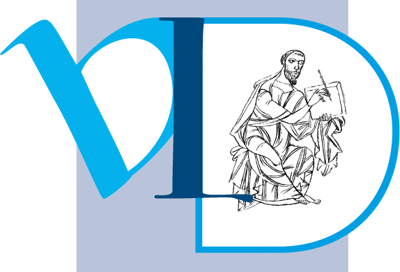|
Inhalt :: Content
Online-Service mit Zugang zur vollständigen patristischen Kartei des Vetus Latina Instituts in Beuron zugänglich. Die Kartei weist sämtliche biblischen Zitate und Anspielungen der lateinischen und in früher Zeit ins Lateinische übersetzten Kirchenschriftsteller nach und dient damit als wesentliche Quelle für die ansonsten nur sehr bruchstückhaft überlieferte Vetus Latina.
Vetus Latina oder "altlateinische Bibel" ist die Sammelbezeichnung für die umfangreiche Gruppe der lateinischen Bibeltexte, die vor und teilweise neben der Vulgata lebendig und seit dem 2. Jahrhundert in Gebrauch waren. Die Online-Ausgabe umfasst zusätzlich H. J. Frede: Kirchenschriftsteller. Verzeichnis und Sigel (4. aktualisierte Auflage, Freiburg 1995) und dessen Aktualisierungen durch R. Gryson (Freiburg 1999 und 2002).
|

|
|
Verlagsinformation :: Publisher's information
The huge panoply of Latin biblical texts which were in existence and use from the second century AD/CE until the time when the Vulgate became predominant are known under the common rubric of the "Vetus Latina", or the Old Latin, Bible. The term "Vetus Latina" refers to all those biblical texts translated into Latin which are not found in the Vulgate. The textual tradition of the Vetus Latina is complex and incomplete. Because there are a limited number of extant manuscripts that haphazardly cover the biblical text the basic sources are biblical citations or allusions that are found within the writings of the Latin Fathers or Greek patristic authors who were translated at an early date into Latin.
The Latin Bible is at the core of Western culture, but it also bears witness to the development of this civilisation, through the many reworkings the text has undergone down the centuries. Our whole intellectual and religious history can be held up to the mirror of these variants. They are a fundamental resource not only for theologians, but for historians and literary scholars. Many layers of language, from the most vernacular to the most refined, can be seen in these texts.
The founders of the "Thesaurus Linguae Latinae" were not unaware of these facts. At their prompting a Bavarian priest, Abbot Joseph Denk, in the late nineteenth century undertook to start collecting all citations to the Latin Bible from the writings of the Church Fathers, in the way that had been done 250 years earlier by the Maurist Pierre Sabatier. It is important to stress that versions of Holy Scripture, throughout the ages, have quickly become outdated and, during the manuscript era, the redundant texts which were no longer being recopied were destined for extinction. Citations alone record them, and hence their importance.
Denk's collection, comprising many hundreds of thousands of files, was deposited at Saint Boniface Abbey in Beuron (Germany). The collection is the foundation for the task of editing the ancient Latin versions of the Bible being undertaken by the Vetus Latina Institute at the abbey itself. It is constantly being updated and expanded, as new editions of patristic writings appear.
The database contains every citation, listed by book, chapter and verse of the Bible. The software allows the scholar to search citations individually or as a whole, following the biblical structure to print the results. The result of the search is the image of the archival cards with the up-to-date information as it is held in the Vetus Latina Institute in Beuron.
Key Features
- Contains the comprehensive patristic records of the Vetus Latina Institut in Beuron
- Over 800,000 biblical citations
- The complete repertorium of H. J. Frede (Kirchenschriftsteller- Verzeichnis und Sigel, Freiburg, 1995) can be consulted online within the application, as well as the repertorium’s regular updates by Professor Gryson
|

